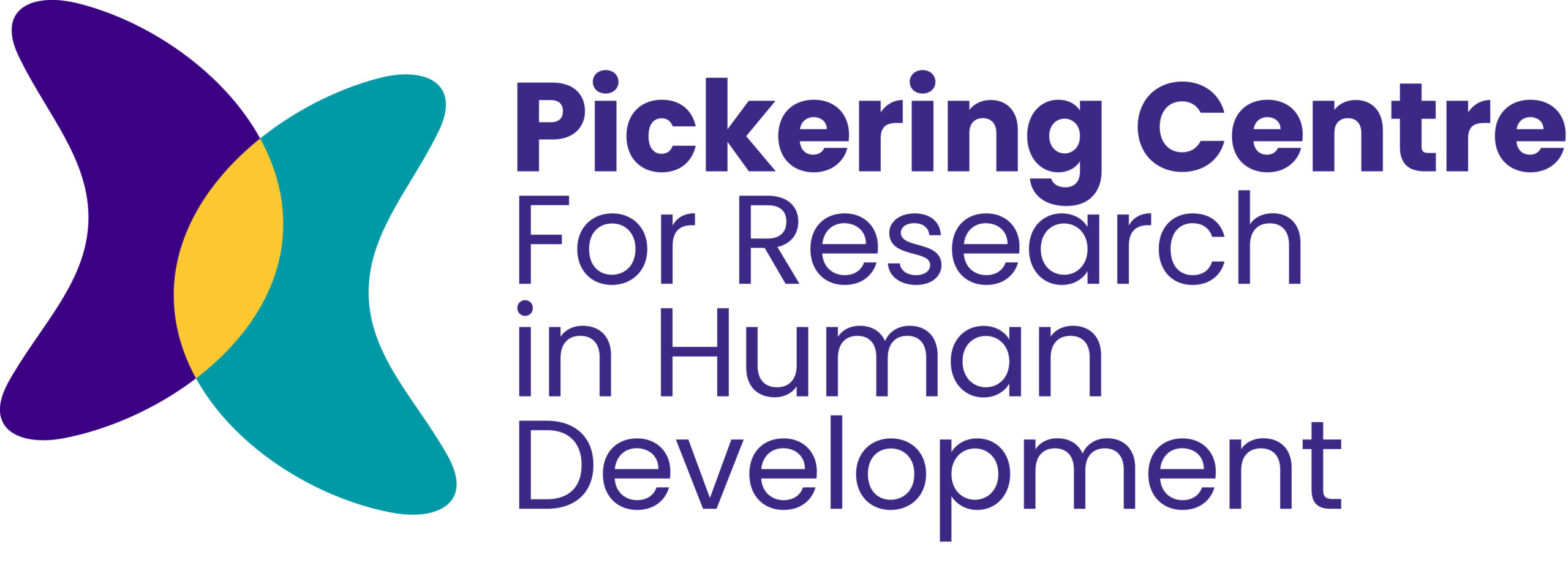Faculty
Our award-winning faculty members are highly accomplished researchers in psychology and cognitive science. While we all have a unique area of focus, we are united through our passion for child and adolescent development and desire to drive real-world impact through our research.
Click on the photos to read the bios of our faculty.

María Inés Susperreguy (Visiting Scholar)
Dr. Susperreguy received her Ph.D. in Education and Psychology from The University of Michigan in 2013. She is an Associate Professor in the Faculty of Education at the Pontificia Universidad Católica de Chile (PUC), in Chile, and the director of the Millennium Nucleus for the Study of the Development of Early Math Skills (MEMAT). Her research has focused primarily on the contextual influences of child development and the social-emotional and cognitive aspects involved in children’s math learning. She is particularly interested in how families promote the development of early math skills in children from diverse populations, particularly Latin-American children.

Monique Sénéchal
As a developmental psychologist, I am interested in understanding how children learn language and literacy from events that occur naturally in their lives. One such activity is when parents (or other adults) read books to children, or when children read books themselves. I am also interested in understanding the basic mechanisms that underlie the acquisition of reading and writing in English and in French.

Maria Rogers
ADHD and attentional abilities in children. School readiness of at-risk children. Parental involvement in learning. Emotion regulation. Parent-mediated interventions.
- Ashlyn Carwana
- Christine Okigbo
- Charlotte Girard
- Carolynn Hare (Post-doctoral Scholar)
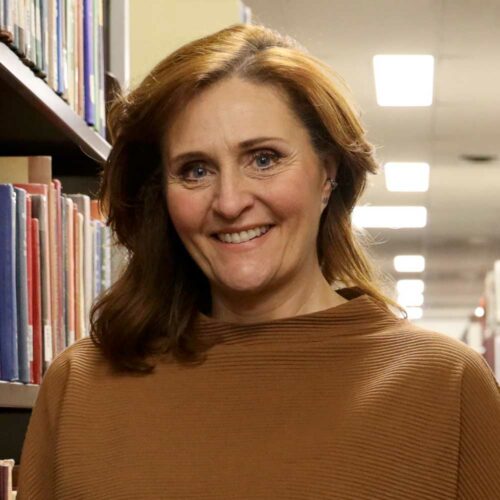
Stefania Maggi
Dr. Maggi is an interdisciplinary scholar whose mixed-methods research bring together developmental sciences, population health approaches, participatory methods, statistical modelling, and arts-based approaches. Her work focuses on promoting individual and collective resilience in the context of climate change, especially among children and youth; positive development and emotional intelligence; social, educational, and relational determinants of early career development; impacts of climate change on children, families, and communities; and enabling factors promoting pro-environmental behaviours and climate action.
Dr. Maggi embeds elements of advocacy and resilience promoting strategies in her teachings helping students advance both their academic competences, psychological wellbeing, and socio-emotional learning. She is cross appointed between the Childhood and Youth Studies program and the Department of Psychology at Carleton University where she teaches course relevant to the psychology of climate change, education for sustainable development, nature connection, and human development.
Her participatory research collaborations with educational institutions and community-based organizations in Canada and abroad focus on addressing the impacts of climate change on the wellbeing of young people and the use of immersive technologies (e.g., video games) to promote positive development, emotional wellbeing, climate awareness and environmental behaviors and action.
Dr. Maggi is the founder of Mochi4ThePlanet, a youth-led movement promoting coping with climate change and emotional resilience. She is also an executive member of the Landon Pearson Centre for the Studies of Childhood and Children’s Rights; an advocate for the promotion of children’s rights; a member of the Pickering Centre for Human Development, the Climate Psychology Alliance North America, the Child Rights Academic Network, and Teachers for Future International.
- William Van Veen

Jo-Anne LeFevre
My research interests are in cognitive development and cognition, focusing on individual differences and developmental differences in mathematics. We are currently pursuing various topics in numerical cognition including (a) the types of mental codes adults use to solve arithmetic problems, (b) the role of working memory in mental arithmetic, and (c) the development of early numeracy skills in preschool and kindergarten children. Applied projects include research on the role of language in mathematical learning for children in elementary school and the development of tools for assessing early numeracy skill.
- James Vellan
- Tae Bourque
- Ayushi Chitranshi
- Jenna Rice
- Steph Gunning
- Liza Kahwaji
- Sarah Kelly
- Alex Kirby
- Shuyuan Yu (Post-doctoral Scholar)
- Heather Douglas (Post-doctoral Scholar)
Ph.D. Student, Cognitive Science
Previous Degrees:
- Master of Cognitive Science (Carleton University), B.Sc. (Laurentian University)
Research Interests:
- Bilingualism and its effect on mathematical cognition
- Role of domain-general and domain-specific vocabulary in bilingual children’s math performance
- Reading difficulties, dyslexia, and approaches to intervention
- Differences in individual’s acquisition of quantifying words (e.g., some, more, most)
Postdoctoral Scholar, Cognitive Science
Previous Degrees:
- M.A., Psychology, the Ohio State University; Ph.D., Psychology, the Ohio State University
Research Interests:
Shuyuan is a postdoctoral researcher with Dr. Jo-Anne LeFevre. Shuyuan’s research investigates children’s mathematical development and learning mechanisms underlying conceptual changes. Her past research examines cognitive supports to facilitate fraction learning by analogy, e.g., spatial alignment between integers and fractions on number lines. She is also interested in interventions to help students with math learning disabilities. Her another research line explores the automaticity of spatial-numerical associations. Shuyuan’s current work explores early mathematics assessment to track developmental changes in early numerical skills and examine how individual differences in early numeracy profiles predict later math proficiency.
Selected Publications:
Yu, S., Kim, D., Fitzsimmons, C. J., Mielicki, M. K., Thompson, C. A., & Opfer, J. E. (2022). From integers to fractions: The role of analogy in developing a coherent understanding of proportional magnitude. Developmental Psychology, 58(10), 1912–1930. https://doi-org.proxy.lib.ohio-state.edu/10.1037/dev0001398
Yu S, Li B, Zhang M, Gong T, Li X, Li Z, et al. (2020) Automaticity in processing spatial-numerical associations: Evidence from a perceptual orientation judgment task of Arabic digits in frames. PLoS ONE 15(2): e0229130. https://doi.org/10.1371/journal.pone.0229130

Deepthi Kamawar
Dr. Kamawar’s research focuses on young children’s development in the following areas: Executive Function, Moral Reasoning, and Future-Oriented cognition.
- Ellen Doucet
- Sofia Mah
- Brooke Smith

Andrea Howard (Director)
My research primarily examines mental health (depression, anxiety) and substance use (alcohol, cannabis, tobacco, and other drugs) in adolescence and the transition to adulthood. Current studies with collaborators include: (1) evaluating the developmental course of substance use from late childhood to the mid-twenties, comparing people with and without childhood histories of ADHD; (2) the intersection of self-control, mental health, and alcohol use in undergraduate students; (3) contexts that impact well-being in adolescence and the transition to university, particularly parent involvement and smartphones/social media.
I am also actively engaged in research and pedagogical work on quantitative methods for developmental and clinical research. Recent projects examined data visualization strategies and participant compliance with ecological momentary assessment protocols.
- Korina Taguba
- Alysha Stoakes
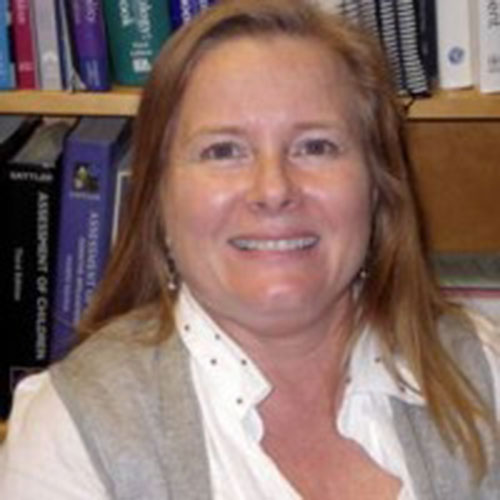
Tina Daniels
Tina Daniels has been studying conflict and aggression for the last 20 years. Her interests are in the area of primary prevention . She has developed, implemented and evaluated conflict resolution programs, social skills training programs, peer mediation programs and anti-bullying programs both locally and internationally. In the last five years she has directed her attention to understanding the role social/relational aggression plays within children’s close relationships, in particular girls’ best friendships and peer networks. By better understanding the relational nature of aggression and the relationships that surround and shape children who utilize and experience aggressive strategies she hopes to be better able to teach children to deal effectively with the conflict they find in everyday life. Most recently Tina has helped to found and currently sits as the Chair of the Ottawa Anti-bullying Coalition, a group of more than 50 community members committed to raising awareness of the negative effects of bullying and to eliminating bullying in all realms of a child’s life. She gives a number of workshops to teachers, parents and children regarding the development and implementation of Anti-bullying initiatives each year.
Publications
Wichmann, C., Coplan, R. and Daniels, T. (2004) The Social Cognitions of Socially Withdrawn Children. Social Development, 13, 377-392.
Daniels, T., Delveaux, K. & Spence, L. (April, 2003) The Social Relationships of Highly Relationally Aggressive Individuals. Poster presented at Society for Research in Child Development, Tampa, Florida
Delveaux, K. and Daniels, T. (August, 2002) Social Cognitions Associated with Physical and Relational Victimization. Poster presented at the International Society for the Study of Behavioral Science, Ottawa, Ont.
Mayne, J., Daniels, T. and Spence, L. (August, 2002) The Relationship Between Sociometric Status and Social Network Position in Children. Poster presented at the International Society for the Study of Behavioral Science, Ottawa, Ont.
Delveaux, K. & Daniels, T. (2000) Children’s social cognitions: Physical and relationally aggressive strategies and children’s goals in peer conflict situations. Merrill-Palmer Quarterly, 46(4), 672-691.
- Lisa Sarraf
- Rachel Sharp
- Kassia Makris

Robert Coplan
My research focuses on experiences of solitude across the lifespan and across cultures. In particular, I am interested in the development and implications of shyness, social withdrawal, and preference for solitude. My most recent research projects have focused on: (1) the costs and benefits of solitude in childhood, adolescence, and adulthood; (2) the challenges faced by shy and anxious children at school; and (3) the meaning and implications of social withdrawal in different cultures.
- Tiffany Cheng
- Megan DeGroot
- Alicia McVarnock
- Alyssa Nolan
- Catherine Sarginson
- Anna Stone
PhD Student, Psychology (Vanier Scholar)
Previous Degrees:
- Master of Science, Applied Science, Saint Mary’s University
- Bachelor of Arts, Psychology, Saint Mary’s University
Research Interests:
I am a fourth-year PhD student in Developmental Psychology, working under the supervision of Dr. Robert Coplan. My research currently focuses on experiences of solitude during adolescence and emerging adulthood. I am specifically interested in looking beyond time alone to consider how the “what” (i.e., solitary activities), “why” (i.e., internal motivations), and “where” (i.e., environmental context) of solitude interact to predict well-being. I am also enthusiastic about advanced statistical techniques and hope to graduate with a concentration in Quantitative Methodology.
As a secondary line of research, I use participatory action, mixed (qualitative/quantitative) research methods to examine how community-based interventions can be leveraged to enhance ecological resilience in violence-affected youth.
Undergraduate Honours Thesis Title: Social withdrawal and academic achievement in emerging adulthood
Master of Science Thesis Title: Service quality, resilience, and social-emotional competence in vulnerable youth: What’s LOVE got to do with it?
Doctoral Dissertation Title: The “where” of solitude: A mixed-methods approach to examining the benefits of being alone versus with others in nature
Selected Publications:
Ding, X., McVarnock, A., Li, M., Coplan, R. J., Ooi, L. L., Yu, J., & Sang, B. (2025). Motivations for social withdrawal and socio-emotional functioning among urban/suburban Chinese children. Journal of Applied Developmental Psychology, 98, e101787. https://doi.org/10.1016/j.appdev.2025.101787
McVarnock, A., Cheng, T., Stone, A., DeGroot, M., & Coplan, R. J. (2024). The development of social withdrawal research in childhood and adolescence over 70 years: A systematic scoping review. Merrill-Palmer Quarterly, 70(2), 189-217.
McVarnock, A., Coplan, R. J., White, H., & Bowker, J. C. (2023). Looking beyond time alone: An examination of solitary activities in emerging adulthood. Journal of Personality, 00, 1-20. https://doi.org/10.1111/jopy.12905
McVarnock, A., Cheng, T., Polakova, L., & Coplan, R. J. (2023). Are you alone? Measuring solitude in childhood, adolescence, and emerging adulthood. Frontiers in Psychiatry, 14, 1179677. https://doi.org/10.3389/fpsyt.2023.1179677
Zhu, J., McVarnock, A., Li, Y., Polakova, L., Xiang, S., Li, Y., & Coplan, R. J. (2023). Shyness and socio-emotional adjustment among young Chinese children: The moderating role of screen time. Behavioral Sciences, 13, 763. https://doi.org/10.3390/bs13090763
Bekkhus, M., McVarnock, A., Coplan, R. J., Ulset, V. V., & Kraft, B. (2022). Developmental changes in the structure of shyness and internalizing symptoms from early to middle childhood. Child Development, 94(4), 1078-1086. https://doi.org/10.1111/cdev.13906
Closson, L. M., & McVarnock, A. M., & Cook, L. E. (2022). Is there an upside to social withdrawal? Considering well-being among socially withdrawn emerging adults. Applied Research in Quality of Life, 17, 3131-3149. https://doi.org/10.1007/s11482-022-10056-w
Coplan, R. J., & McVarnock, A., Hipson, W. E., & Bowker, J, C. (2022). Alone with my phone? Examining beliefs about solitude and technology use in adolescence. International Journal of Behavioral Development, 00(0), 1-9. https://doi.org/10.1177/01650254221113460
McVarnock, A., & Closson, L. M. (2022). Subtypes of social withdrawal and academic adjustment in emerging adulthood. British Journal of Developmental Psychology, 40(2), 352-367. https://doi.org/10.1111/bjdp.12411
Closson, L. M., McVarnock, A., & Sanford, K. (2019). Social withdrawal and social surrogacy in emerging adulthood. Journal of Youth and Adolescence, 48, 717-730. https://doi.org/10.1007/s10964-018-0932-4
MA Student, Psychology
Office: SSRB 210F
Previous Degrees:
- Master of Arts Psychology, Carleton University: Data Science Specialization
- Bachelor of Arts Honours Psychology, Carleton University: concentration in Social and Personality Psychology and minor in Neuroscience and Mental Health
Research Interests:
I am a first-year PhD student working with Dr. Robert Coplan. My research interests include examining the social and personality aspects that influence one’s experience of solitude. I am involved in a variety of projects with varying methodologies. Presently, I am researching the paradox of having a social identity as someone who enjoys solitude, and the various impacts of this social identity has on experience of solitude. I am also interested in examining the use of chatbots and AI to meet socialization needs. Finally, I am interested in methodology and statistics and I’m pursuing a concentration in quantitative methodology.
Selected Publications:
- McVarnock, A., Cheng, T., Stone, A., & DeGroot, M. (In press). The Development of Social Withdrawal Research in Childhood and Adolescence Over 70 Years: A Systematic Scoping Review. Merrill-Palmer Quarterly.
- Brunetti, M., Sette, S., Cheng, T., Laghi, F., Longobardi, E., Pastorelli, C., Zuffianò, A., & Coplan, R. J (2024). Solitary groups: A latent profile analysis of motivations for social withdrawal and experiences of solitude in late childhood and early adolescence. Social Development, e12742.https://doi.org/10.1111/sode.12742.
- Teodorescu, D., Cheng, T., Fyshe, A., & Mohammad, S. (2023). Language and Mental Health: Measures of Emotion Dynamics from Text as Linguistic Biosocial Markers. In Proceedings of the 2023 Conference on Empirical Methods in Natural Language Processing (pp. 3117–3133). Association for Computational Linguistics. https://doi.org/10.18653/v1/2023.emnlp-main.188
- McVarnock, A., Cheng, T., Polakova, L., & Coplan, R. J. (2023) Are you Alone? Measuring Solitude in Childhood, Adolescence, and Emerging Adulthood. Frontiers in Psychiatry, 14, https://doi.org/10.3389/fpsyt.2023.1179677
- Tabri, N., Cheng, T., Palmer, L., Kim, H. S., Clark, L., & Wohl M. J. A. (Accepted). Testing the bifactor model of the Financially Focused Self-concept Scale. Journal of Gambling Issues
- Zhu, J., Coplan, R.J., Jiang, Y., Cheng, T., Xie, M., Xiang, S., & Li, Y. Social Avoidance and Socio-Emotional Functioning among Young Chinese Children: The Moderating Role of Maternal Depressive Symptoms. Under review at Journal of Child and Family Studies
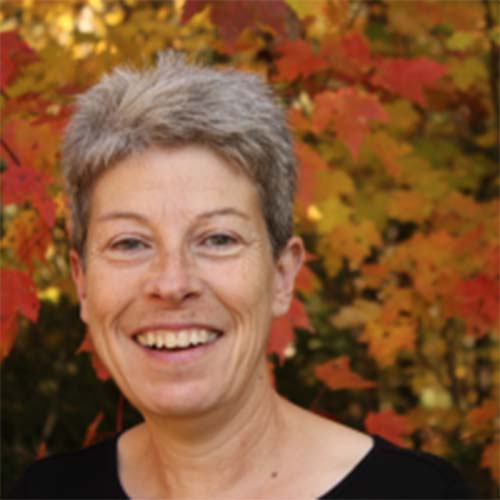
Anne Bowker
As a developmental psychologist, I have always been interested in transitions – how early adolescents cope with the daily hassles associated with puberty, peer pressure and parental conflict; the role that extra-curricular activities play in positive youth development throughout high school; the transition from adolescence to young adulthood and developmental phase called emerging adulthood; the transition to university and most recently, the transition to mid-life, understanding how women navigate the menopausal transition and it’s impact on successful aging.
My current research focus is two-fold: a) A focus on emerging adulthood and the transition to university; identifying key factors that predict student engagement, with a particular interest in how supportive relationships with parents, peers and faculty, can facilitate this transition; and b) A focus on mid-life, understanding the psychological impact of menopause, the role of significant relationships in this transition and how body image at mid-life, influences well-being.
- Brooklyn Rawlings

Katie Gunnell
I am interested in understanding the psychological correlates and mechanisms of psychological health and behaviour across various populations including youth, adults, and individuals diagnosed with osteoporosis. I examine all aspects of the psychological health continuum including ill-being (e.g., symptoms of depression), hedonic well-being (e.g., positive affect), and eudaimonic well-being (e.g., vitality). The behaviours I am interested in understanding include physical activity and recreational screen time (e.g., watching TV, playing video games). In an effort to better understand how to enhance psychological health and physical activity and decrease screen time, I am particularly interested in psychological needs (e.g., competence, autonomy, and relatedness) and motivation as mechanisms for change. In a secondary line of research, I am interested in psychometrics and quantitative statistics.

Vivian Lee
My research focuses on the emotional and mental health of children and youth with autism and other neurodevelopmental disabilities. My work includes the investigations of child-, parent-, and system-level characteristics, and the relationship between these factors, that either support healthy emotional development or exacerbates difficulties in the child and for the family. I am also interested in the impact of these factors on overall parent and family wellbeing. Additionally, I have an interest in implementation science and program evaluations, and working alongside community-based autism providers and advocacy groups, I am investigating the impact of the COVID-19 pandemic, as well as participation in psychosocial interventions on the mental health and wellbeing of autistic youth and their caregivers.
- Jennifer Crookshank
- Rhine Basu
- Catherine Sarginson
- Lam Nguyen
Affiliate Members
Scholars throughout Carleton University share our enthusiasm for understanding growth and change across the lifespan. Affiliate members are faculty with appointments in departments beyond Psychology and Cognitive Science, as well as adjunct faculty in the Department of Psychology.

Christine Polihronis
Christine Polihronis currently works at the Knowledge Institute on Child and Youth Mental Health and Addictions as a Senior Data Analyst. Her area of research focuses on improving mental health and addictions care for children and youth in community organizations and emergency departments.

Tamara Sorenson Duncan
My research program investigates language and literacy development in diverse populations. To date, this work has included children from immigrant and refugee backgrounds and neurodivergent children. I am currently working to enhance and build collaborative research relationships with educators and clinicians to jointly build research projects that seek to better understand bilingual development in diverse learners.

Cecilia Jorgenson
As a developmental psychologist and Registered Early Childhood Educator, Dr. Cecilia Jorgenson is interested in understanding positive development through active engagement across the life span. Dr. Jorgenson’s current research focuses on the development of early numeracy in infants, toddlers, and preschool children through play. Previous research activities have focused on the development of perceived competence in youth sports, academic engagement among emerging adults, the associations between physical activity, psychological states, and flourishing, and the benefits of yoga on mental health. Dr. Jorgenson is also actively interested in pedagogical work on quantitative methods for developmental research.
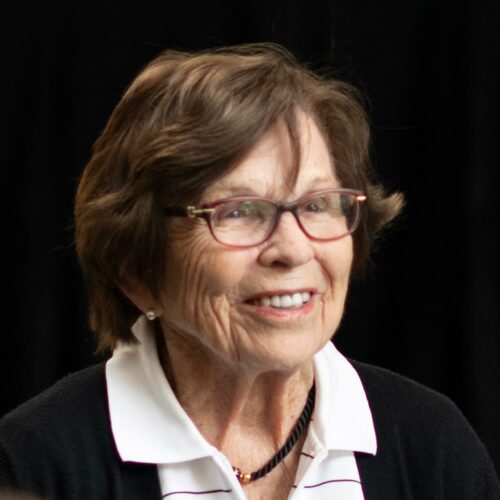
June Pimm
Dr. June Pimm (née June Pickering) was born in Ottawa, and she received her B.A. (with Honours), and her M.Ps.Sc. from McGill University. She enrolled in the doctoral program in Developmental Psychology at Carleton University, graduating as Carleton’s first Ph.D. in Arts. Following graduation from Carleton, Dr. Pimm began a long career in Developmental Psychology (with a brief detour into Health Psychology). Her interest in children with emotional problems began with her first employment at the Ottawa School Board where she established the first public school classroom for “Emotionally Disturbed” children. Dr. Pimm established a private practice, contracting to private schools in the Miami, Florida area, and to the Florida Juvenile Justice Department. She was also Associate Professor of Pediatrics at the University of Miami School Of Medicine where she worked in the field of Neonatology monitoring the development of very low birthweight infants for their first three years of life. Dr. Pimm re-joined the Psychology department of the Ottawa Carleton District School Board where she was Coordinator of the Autism Initiative for the Board, where she supervised the activities of the Autism Spectrum Team and conducted research on a population of over 700 children diagnosed with ASD. On June 17, 2021, Dr. Pimm was awarded an Honorary Doctorate Degree from Carleton University in recognition of her distinguished career in Developmental Psychology.

Rebecca Merkley
I collaborate with international researchers, educators, and non-profit organisations to build stronger connections between developmental science and policy and practice in education. My multidisciplinary research explores the reciprocal relationship between early childhood education and children’s cognitive development.

John Anderson
Dr. John Anderson is an Assistant Professor in the Department of Cognitive Science, cross-appointed to the Department of Psychology at Carleton University, and a Canada Research Chair (Tier II) in Cognition and Wellness. Dr. Anderson is the Principal Investigator of the Cognition and Neuroscience of Aging Lab. Dr. Anderson holds a status-only appointment as an Assistant Professor at the Dalla Lana School of Public Health at the University of Toronto and is an Affiliate Scientist at the Centre for Addiction and Mental Health (CAMH). Dr. Anderson has a Ph.D. in Psychology from the University of Toronto. He completed post-doctoral training in research on bilingualism and cognitive reserve at York University. He advanced neuroimaging and the links between depression and dementia in older adults at the Centre for Addiction and Mental Health.
Students
Current graduate students supervised by a faculty member of the Pickering Centre are listed below.
- Brooklyn Rawlings (Anne Bowker)
- Alicia McVarnock (Robert Coplan)
- Tiffany Cheng (Robert Coplan)
- Anna Stone (Robert Coplan)
- Megan DeGroot (Robert Coplan)
- Alyssa Nolan (Robert Coplan)
- Lisa Sarraf (Tina Daniels)
- Rachel Sharp (Tina Daniels)
- Kassia Makris (Tina Daniels)
- Ellen Doucet (Deepthi Kamawar)
- Sofia Mah (Deepthi Kamawar)
- Brooke Smith (Deepthi Kamawar)
- Yulia Gmiro (Andrea Howard)
- Korina Taguba (Andrea Howard)
- Alysha Stoakes (Andrea Howard)
- James Vellan (Jo-Anne LeFevre)
- Tae Bourque (Jo-Anne LeFevre)
- Ayushi Chitranshi (Jo-Anne LeFevre)
- Jenna Rice (Jo-Anne LeFevre)
- Steph Gunning (Jo-Anne LeFevre)
- Liza Kahwaji (Jo-Anne LeFevre)
- Sarah Kelly (Jo-Anne LeFevre)
- Alex Kirby (Jo-Anne LeFevre)
- Shuyuan Yu (Post-doctoral Scholar) (Jo-Anne LeFevre)
- Heather Douglas (Post-doctoral Scholar) (Jo-Anne LeFevre)
- Jennifer Crookshank (Vivian Lee)
- Rhine Basu (Vivian Lee)
- Catherine Sarginson (Vivian Lee and Robert Coplan)
- Lam Nguyen (Vivian Lee/Jo-Anne Lefevre)
- William Van Veen (Stefania Maggi)
- Ashlyn Carwana (Maria Rogers)
- Christine Okigbo (Maria Rogers)
- Charlotte Girard (Maria Rogers)
- Carolynn Hare (Post-doctoral Scholar) (Maria Rogers)
